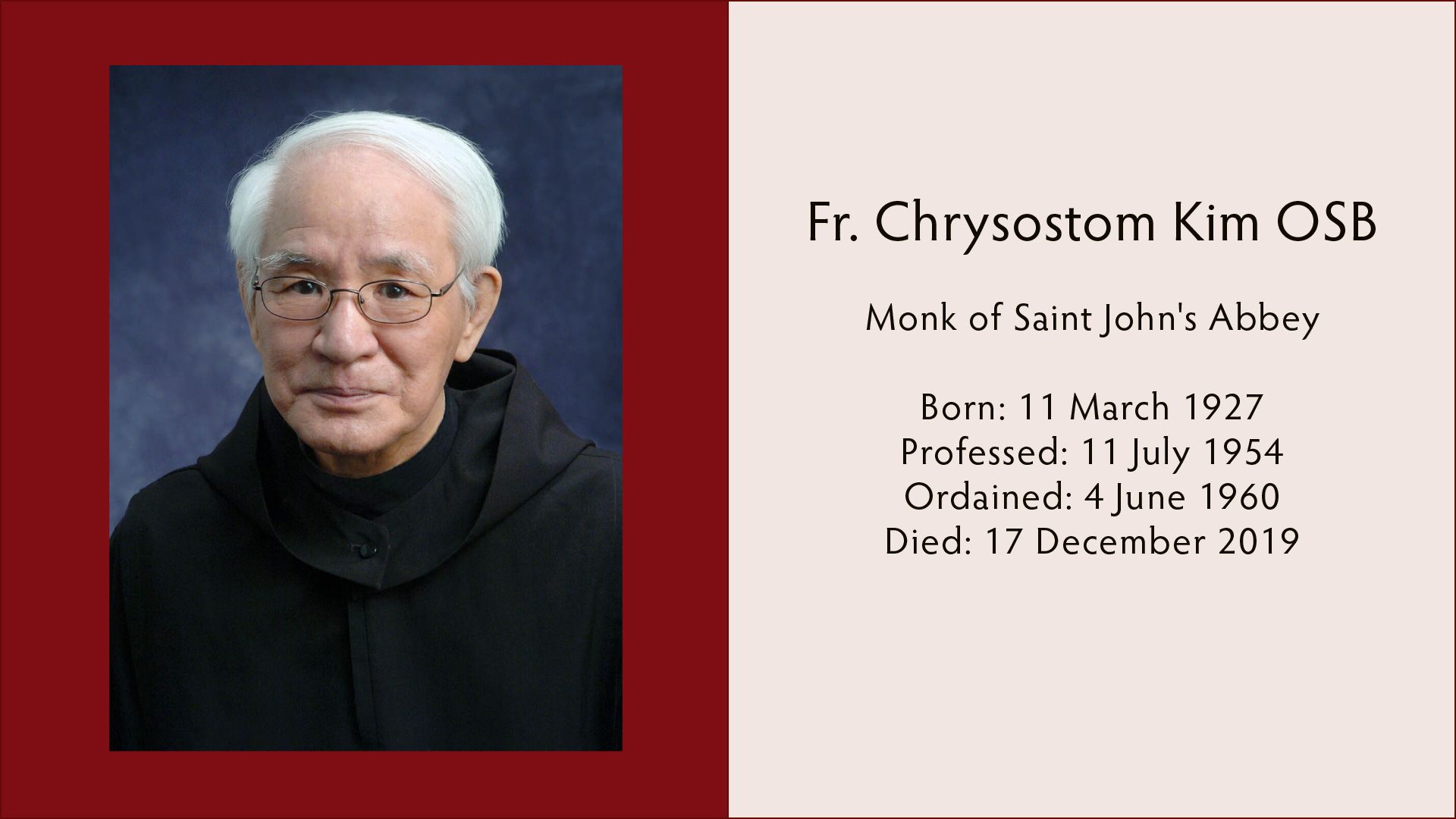Hak Bong Kim was born on March 16, 1927 in Taegu, Korea, the fifth son of Sang Yun Kim and Ki San Bak. He attended elementary and secondary schools in Taegu where he also became fluent in Japanese.
In 1948 Hak Bong came to America with the assistance of an attorney who specialized in helping immigrants, allowing him to attend the University of Virginia for a semester. The president of the Institute of International Education, a foundation that promoted the exchange of students and scholars, sent telegrams to college administrators inquiring if a scholarship might be offered him. About this Hak Bong wrote, “My preference at the time was Columbia, Chicago, or one of the New England schools. However , it happened that Father Flynn, the president of the College of Saint Thomas, was the first to respond to the telegram, offering a full scholarship, and I felt doomed to go to Minnesota. The institute repeatedly assured me that it would swiftly transfer me to another school if I did not like Saint Thomas. I bought a train ticket to Saint Paul, leaving New York gloomy and unhappy.”
The College of Saint Thomas would be a life-changing experience. While majoring in Social Science, Hak Bong had the good fortune of meeting Father William O’Donnell, vice-president who gave him instructions in the faith. He was baptized with the Christian name Andrew in Saint Mark’s Church, Saint Paul. Andrew’s baptism brought his searching mind to a singleness. He admits that it made him gasp at the teaching of Benedict who wrote: “We descend by self-exaltation and ascend by humility.” He had sought meaning through politics and social change, but now he found salvation through the Christian ethic of service and humility.
His intellectual curiosity continued throughout his active life. Andrew received his B.A. degree in Social Science from the College of Saint Thomas, and in 1953 he was accepted as a novice at Saint John’s Abbey. Receiving the name Chrysostom after the Greek Church Father Saint John Chrysostom, he professed his first vows on 11 July 1954.
Chrysostom ‘s faith, as well as his intellectual and cultural journey, was complicated. His monastic superior during his religious formation found that Chrysostom did not fit easily or readily into any classification. He was an “intense, intellectual and studiously inclined person.” He preferred the dominance of the mind to emotion. He was diligent in his studies and faithful in his monastic observance. He felt blessed to pursue the monastic life as it seemed the right fit for him.
After completing his theological studies, Father Chrysostom was ordained a priest on June 4, 1960. His first assignment for one year was as a pastoral associate at Saint Augustine Parish, Saint Cloud. Father Chrysostom then enrolled at the University of Chicago, receiving an M.A. in Political Science and, later, a Ph.D. in 1970, with a dissertation entitled “England and Hobbes’s Bourgeois Thought ”
Still working on his dissertation, Father Chrysostom began his teaching career of nineteen years from 1967 to 1986 at Saint John’s University, largely in the Honors Program. He taught these classes in the seminar style of his graduate education. For many students, he was a pivotal figure in their intellectual development For others, his own temperament could not provide enough encouragement and affirmation for them to flourish. He was known as a demanding teacher and forceful confrere.
Father Chrysostom was challenged by living in community as he found the full gamut of people and ideas either confusing or difficult to cope with. He loved to read, study, and reflect deeply on ideas for hours at a time. Often his homilies would be a segment of that reflection. Not unexpectedly, his intelligence and learning did not translate well into mechanical or social skills.
A new chapter began for Father Chrysostom when he was assigned in 1986 to the Saint John’s priory and parish of Saint Anselm’s in Tokyo, Japan . He was novice master and junior master at Saint Anselm’s for seven years. He also was pastor of the parish from 1989 to 1993. Parishioners remembered Father Chrysostom fondly because he spoke classic Japanese that he learned as a child, and his command of the language allowed him to communicate the faith at a deep level. He was kind and thoughtful, especially with the children, and he welcomed the poor who often appeared at the door.
Father Chrysostom returned to Saint John’s Abbey where he spent his time as a writer in residence and did pastoral work at Saint Boniface Church, Cold Spring, from 1996 to 2002. His intellectual interests continued in philosophy, history, poetry, and the arts even as he became increasingly physically and mentally impaired.
Father Chrysostom died on 17 December in the retirement center at Saint John’s Abbey. The monks, family, and friends will celebrate the Mass of Christian Burial for Father Chrysostom on 21 December at 10:30 a.m. in the Saint John’s Abbey and University Church with interment in the Saint John’s Cemetery following the service. We ask each community member to offer two Masses according to the manner of his participation in the priesthood of Christ. We commend our brother Chrysostom to your prayers.
— Abbot John Klassen OSB and the monks of Saint John’s Abbey


